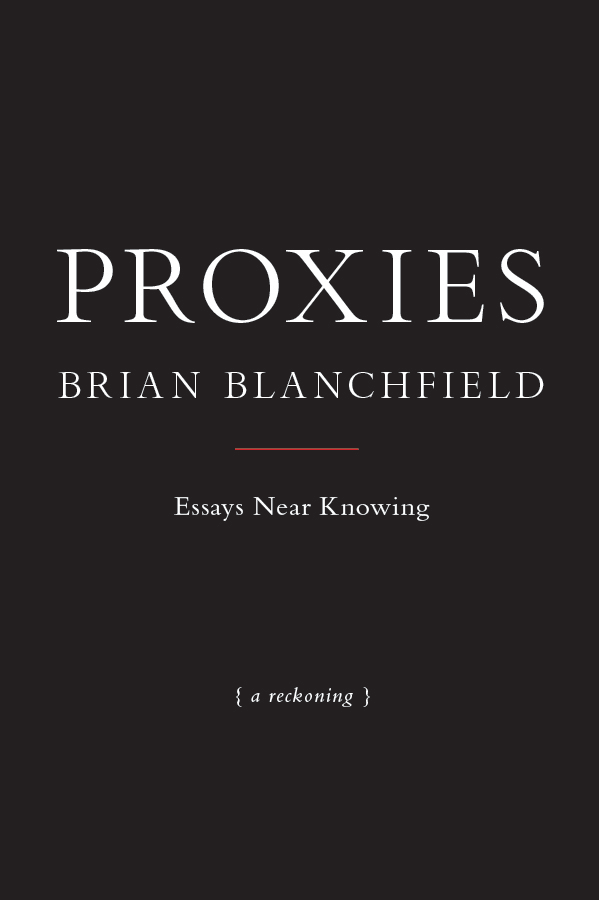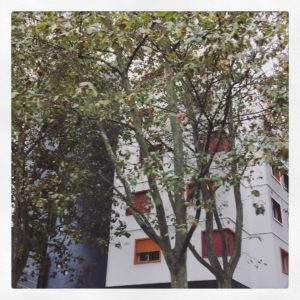Revoke Male Suffrage – An Interview with @girlybullshitmemes
According to the internet, if only men voted, Trump would win in a landslide. When it’s only women or people of color voting, Trump loses. I don’t know if that’s true, but if so, taking away men’s right to vote seems not only justified, but imperative. :-)
I’d never thought about taking away men’s right to vote until I saw this meme from @girlybullshitmemes (& realalcoholicme). Revoking male suffrage seemed like such a simple and radical solution to the nation’s problems, that I became curious as to where such a wonderful policy proposal came from.
@girlybullshitmemes doesn’t post simple Twitter screenshots, she creates beautiful mid-to-late century advertising posters that carry wry, radical-seeming messages like taking away the right of males to choose the nation’s leadership.
I wanted to know more about her and her work, so here’s a quick interview.
Twenty-Eight Things I Wrote in the Margins of Brian Blanchfield’s PROXIES

1. a trying-out … placing a variety of pressures on each essay’s titular subject, seeing what happens, where it leads … form is determined by the action of a restless mind
2. like Barthes, exploring middle ground between autobiography and criticism, imbuing collective experience of culture with intimacy, vulnerability, even if merely by virtue of subject selection … critical unpacking of shared/common behavior … housesitting becomes occasion for reflection on “commensalism” and the “citational,” etc.
3. certain propriety about syntax, tone … implied author and the “man of letters”
4. closed-book constraint is refreshing in part because there’s not that excessive referentiality that’s become so common among lyric essays
READ MORE >
A Ride on Libran Winds

Riding high and feeling low, I went to meet and spend time with the daughter of a fiery psychoanalyst-philosopher, militant, and experimental reformer of psychiatric care in postwar France. I wanted to meet Emmanuelle Guattari without needing to exactly know why. I’d been carrying around her minty green slender novella “I, Little, Asylum” (translated by E.C. Belli, Semiotext(e), 2015) for over a year in my backpack and using a mechanical pencil to write: with, through, beside, throughout, in spite of, without, within, around, marginally, above, underneath, over, and between her book. Basically, these self-help strategies or sun salutations by which to: include, insert, mirror, and assimilate myself into this text were just ways of tricking myself into merging parts of my childhood with hers. (The desire to merge my experience with her experiences in her novella I’m saving for longer daydreamy semi-catatonic spells in bed or in a bath.) Essay. Sail. Essay-sailing. Essail. A noticeable season went by and suddenly I found myself meeting Emmanuelle in an eastern-suburb of Paris on a drizzly day slipping and sliding on the slick scales of Libra; the seventh sign of the zodiac where things shift from “personal focus” to “contact with others and with the world”. Good, makes sense. I took off and went for her like searching for a lost fraternal twin who grew up in a house of madness and maniacs halfway across the world – except in a castle. While I read her book I thought she was describing the Residents I lived with for eleven years except there weren’t any Residents in her book. I was projecting. But how else are you supposed to connect to anything without a little projection? There were Residents everywhere in her book, I swear. The mind has a sneaky way of cutting and pasting, of collaging, of transference doing somersaults in the most untrained way possible.

We met (it felt like a secret) in a working class strip mall at the Montreuil Station and I recognized her right away only because I saw an interview of her online. I approached her, said hello, and hurriedly she welcomed me with a kiss on both cheeks and took me under some invisible wing as we walked through roasted peanut smoke filled swap meats, in and out of cafes, until we made a full circle and settled in a brutal-banal coffee shop tucked in the strip mall we initially tried to get out of. It felt right because of my love for certain kinds of strip malls; giant transparent posters of coffee and sandwiches on the windows. It felt especially right because she did not know my love for them. And so it was “un-homely” as the Germans say. But also that feeling of un-homliness or whatever was totally perfect for all of its (un)familiarity because of what we were about to talk about: vague notions of crisis heterotopias, board and care facilities in Los Angeles where I grew up, and the La Borde hospital outside of Paris where she grew up. We put our coats and bags on a table to save it, kind of pretending that suddenly it would get busy in there. I was too shy to order something substantial to eat like a plain croissant when she kindly offered to treat us. So I pointed at the green grapes in a plastic container and asked for black coffee. Emmanuelle was a little curious about why only green grapes. I could be imagining this now, but there was nothing symbolic at all about the grapes. It was just something easy to eat while asking her questions. Something to casually pop in my mouth between answers and eye blinks and occasionally staring out the window. Some of the grapes were a little soggy but I ate them devotedly.
In the following weeks I’ll be posting parts of the interview.
In your estimation, what do people who work at big publishing companies do right? What do they do wrong? (Neither question is rhetorical.)
Transgressive Circulation: Translation, foreign threats, and counterfeit teenagers
Hi, I thought I would write a few posts about recent translation titles. But before I do that, I thought I would post a link to an essay I wrote about translation which was just published in the Australian journal, Cordite Review. Hopefully it provides some kind of framework for the kinds of issues I will talk about in future posts.
Here’s an excerpt:
1.
At the AWP writers’ conference in Minneapolis a couple of years ago, I attended a panel on Paul Celan’s poetry. In the Q & A that followed the panel, the first question was ‘How can we make sure that young American poets are not improperly influenced by Celan’s poetry without truly understanding it?’ The panel responded by offering a variety of possible solutions, such as reading the extensive literature about the poet or reading his letters and journal entries that have been published as well. However, none of them asked why it should be that this ‘improper influence’ should be the audience member’s biggest concern. I begin with this anecdote because it immediately struck me that the seemingly innocent question went to the heart of the marginalisation of translation in U.S. literature. In U.S. literary discussions, translations are – time after time – marginalised or dismissed in rhetoric that portrays translations as false, improper, counterfeit or of shallow ‘influence.’ The foreign poet is seen as a threat because he or she will ‘influence’ the young American poets who are vulnerable to such foreign forces, incapable of seeing the foreign writer in the proper ‘context’ (that is to say, one that is different from their own). These discussions about the dangers of the ‘foreign influence’ of translated texts betrays a fundamental anxiety about the ‘transgressive circulation’ of texts: an anxiety about the way they move from one context to another, about the way foreign entities may trouble our sense of agency and interiority.1
2.
In the question at the panel, the danger of foreign influence was posited as the dangers of foreign texts seducing the young. The question comes out of a worldview in which the ignorant enthusiasm of the ‘young American poets’ for the foreign texts threaten to make a hoax out of the foreign – make a counterfeit Celan. In their permeability, these hypothetical ‘young American poets’ become purveyors of kitsch, reverse alchemists who turn gold into trash by bringing the foreign into U.S. literature without the proper knowledge or mastery of the foreign. These young American poets insist on a close contact with the foreign, where such communication should be impossible. They are readers who may confuse the boundaries – between U.S. and foreign poetry, between greatness and counterfeitness. They have not yet learned the important distinctions of what belongs and what doesn’t – and most importantly, how to read poetry correctly. Their shallowness – their lack of learning – may cause them to imitate a bad model, or imitate good models for the wrong reasons (I imagine that the questioner at the Celan panel was concerned about Celan’s use of neologisms, for example.). In the terms of Mary Douglas’s argument about ‘pollution symbolism’ – later used by Julia Kristeva in her formation of the idea of abjection – the young poets are the sites of possible contamination, sites where the U.S. literary landscape becomes vulnerable to foreign influence. The question may at first have appeared to be about the learning of Celan, but ultimately it’s a question about keeping the foreign away from U.S. poetry, or keeping it at a safe distance.
The Debut of Oksana Podcast with guest Molly Brodak
Oksana Podcast is conversations with authors and artists. The first guest is Molly Brodak, author of Bandit: A Daughter’s Memoir, recently published by Grove Press.
November 1st, 2016 / 11:22 am

